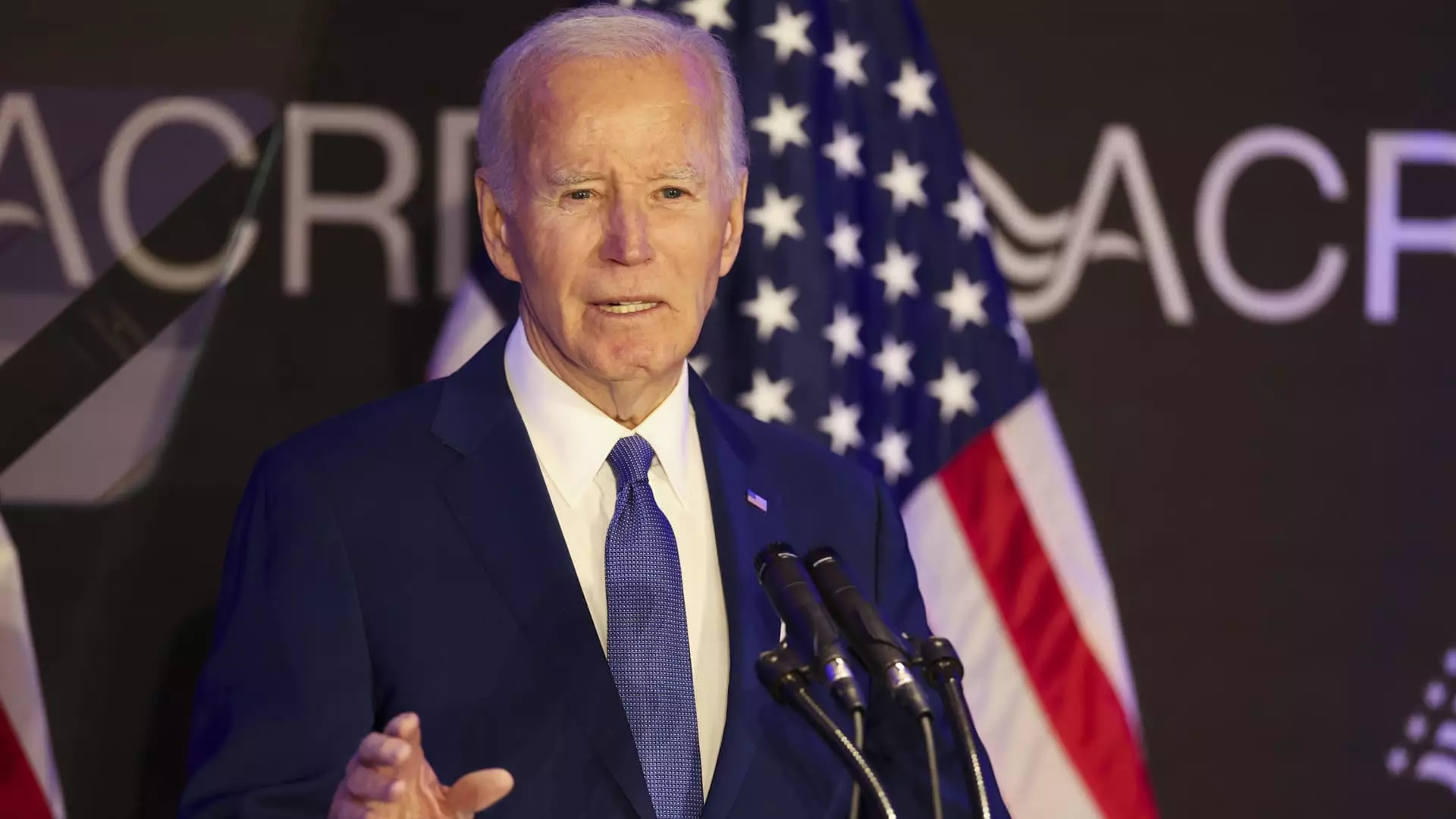The announcement of President Joe Biden’s prostate cancer diagnosis sends ripples through both the medical community and the political landscape. At 82 years old, the Commander-in-Chief faces not just the formidable challenge of cancer, but the burden of public scrutiny that has long been a hallmark of his presidency. As the narrative unfolds, the intersection of personal health and political responsibility draws sharp attention to a leader who has been navigating an increasingly turbulent political environment, while also fighting for his own wellbeing. This situation exemplifies how deeply intertwined our leaders’ health and public perception can become—Biden embodies the resilience necessary not just to confront this cancer, but also to confront the skepticism that shadows his administration.
The Reality of Aggressive Cancer
Biden’s Gleason score of 9 places him in a daunting category of aggressive prostate cancer. The medical implications of such a diagnosis are profoundly sobering. When cancer metastasizes and spreads to the bone, the prospects of treatment become significantly more complex, casting shadows on the path to recovery. While there is a glimmer of hope in the fact that his cancer is hormone-sensitive—a characteristic that can open doors to targeted therapies—the stakes are unquestionably high. The public often misunderstands cancer; it is not just a fight against the disease, but an emotional and psychological odyssey fraught with uncertainty. Biden’s plight highlights the need for genuine empathy from both political allies and adversaries. This is a battle that transcends partisan lines; it is about human life and the dignity that comes with it.
Unity Amidst Division
In a remarkably touching moment of bipartisanship, former President Donald Trump and Vice President Kamala Harris both extended their well-wishes to Biden. This unlikely unity in political rhetoric serves as a reminder that, despite the ideological chasm, some experiences can foster compassion across party lines. Harris’s poignant statement reflects a broader sentiment—that Joe Biden is indeed a fighter.
Politicians are frequently perceived as disconnected from the struggles of everyday Americans, yet Biden’s battle humanizes him in a manner that transcends political rivalry. At a time when the nation is polarized, the appeal for collective compassion serves not just as a short-term response to Biden’s illness, but as a potential reawakening of bipartisan dialogue regarding healthcare policies, access, and cancer research—the issues that matter most in the lives of many American families.
Past Health Concerns and Their Implications
Biden’s health history, including his battle with skin cancer and the removal of polyps, has repeatedly thrust the conversation of age and fitness into the national dialogue. Yet Biden remains resolute, continuously brushing aside age-related apprehensions amid criticisms related to his performance. This brings us to the core question: can a leader effectively govern while grappling with serious health issues? In the backdrop of his ongoing presidency, such inquiries become a regular chorus, adding pressure to an already tumultuous political arena.
The external scrutiny over Biden’s health symbolizes broader societal concerns regarding age and capability in leadership. In an age where youth is often equated with vigor and innovation, Biden’s cancer diagnosis opens the conversation about what it truly means to lead with wisdom. By controlling the narrative around his health, Biden has an opportunity to redefine ageism in leadership while advocating for a compassionate approach to healthcare that prioritizes treatment and understanding.
A Legacy at Stake
As Biden and his family deliberate on treatment options, one cannot ignore the poignant reality that his health trajectory could also impact the legacy of his “cancer moonshot” initiative—his administration’s ambitious commitment to reducing cancer death rates. With personal stakes now infused with public policy, the urgency to address healthcare disparities and cancer research becomes increasingly personal. Biden’s past experiences have undoubtedly shaped the urgency he feels in combating this disease, underscoring the importance of family, compassion, and a relentless fight against cancer.
Biden’s personal journey adds layers of complexity to his political narrative, resonating with countless families facing similar medical battles. In an era filled with divisive rhetoric, the common ground found in health struggles may lead us to reevaluate the values that drive our leaders and the system they represent. The fight against cancer, often seen as a battle of individual fortitude, parallels the collective struggle of a nation trying to navigate the challenges of healthcare, resilience, and, ultimately, unity.

